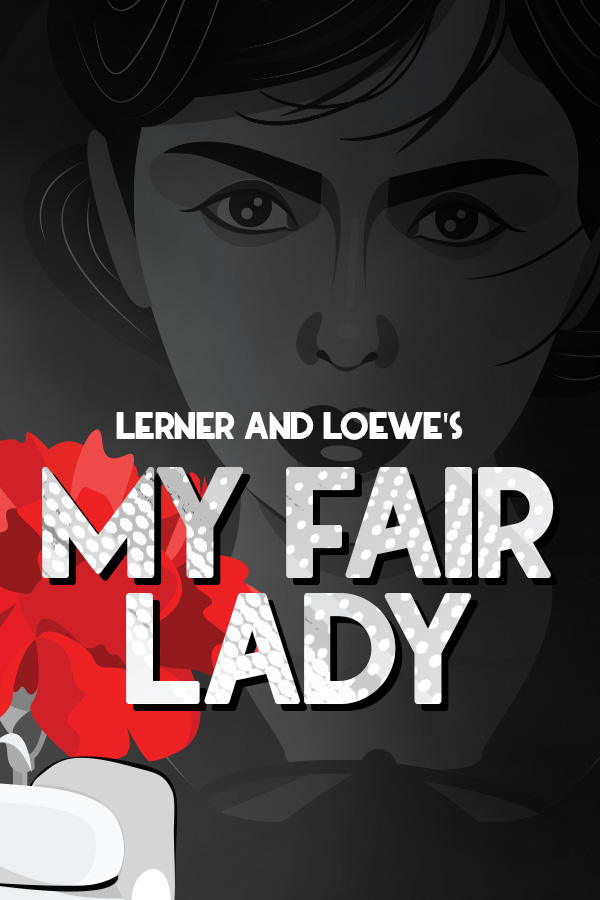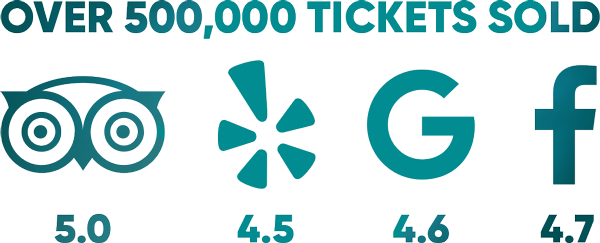My Fair Lady
Based on the film adaptation of George Bernard Shaw’s 1913 play Pygmalion, My Fair Lady is a beautiful musical about transformation, patronage, gender politics and class. Acclaimed phonetician Henry Higgins makes a wager that in six months he can pass off Eliza Doolittle, a Cockney flower girl, as a duchess at an embassy ball. But through arduous training, day and night, this innocuous bet turns into something much more.
Winner of 6 Tony Awards including Best Musical
“One of the gleaming artifacts and loveliest scores of the Golden Age of American musical theater.” The New York Times
Play Details
Book and lyrics by Alan Jay Lerner
Music by Frederick Loewe
Directed by Bill English
Musical Direction by Dave Dobrusky
THE CAST
Cast announcement coming soon.
PERFORMANCE SCHEDULE
| Day of week | Matinee | Evening |
| Monday | - | - |
| Tuesday | - | 7:00 pm |
| Wednesday | 2:00 pm | 7:00 pm |
| Thursday | - | 7:00 pm |
| Friday | - | 8:00 pm |
| Saturday | 3:00 pm | 8:00 pm |
| Sunday | 2:00 pm | - |
Note: View the official calendar for full schedule including special performances.
ACCESSIBLE PERFORMANCES
For blind and visually impaired audience members, San Francisco Playhouse partners with Gravity Access Services to offer live audio description and haptic access tours for selected performances.
About the Creators
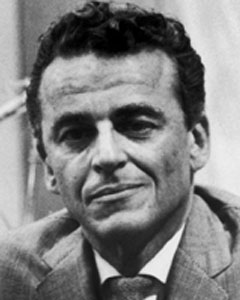 ALAN JAY LERNER, (born Aug. 31, 1918, New York, N.Y., U.S.—died June 14, 1986, New York, N.Y.), American librettist and lyricist who collaborated with composer Frederick Loewe on the hit Broadway musicals Brigadoon (1947), Paint Your Wagon (1951), My Fair Lady (1956), and Camelot (1960) and the film Gigi (1958).
ALAN JAY LERNER, (born Aug. 31, 1918, New York, N.Y., U.S.—died June 14, 1986, New York, N.Y.), American librettist and lyricist who collaborated with composer Frederick Loewe on the hit Broadway musicals Brigadoon (1947), Paint Your Wagon (1951), My Fair Lady (1956), and Camelot (1960) and the film Gigi (1958).
Lerner, whose parents were prosperous retailers (Lerner Stores, Inc.), was educated at Bedales School, Hampshire, Eng.; Choate School, Wallingford, Conn.; the Juilliard School of Music, New York City; and Harvard University (B.S., 1940), where he contributed lyrics to Hasty Pudding shows. He wrote more than 500 radio scripts between 1940 and 1942, the year he met Loewe (who had been composing theatrical songs with little success) at The Lambs theatrical club in New York City. One Lerner and Loewe Broadway production failed, and a second had a five-month run before the 1947 success of Brigadoon.
My Fair Lady, their fifth musical, based on George Bernard Shaw’s Pygmalion, was an unprecedented triumph in American musical theatre. Produced by Columbia Broadcasting System, it set a record at the time for the longest original run of any musical production in London or New York City, was mounted in more than 20 countries, translated into 11 languages, toured the United States for several years, and was revived several times. The film version (1964) won seven Academy Awards. Brigadoon (1954), Paint Your Wagon (1969), and Camelot (1967) were also made into popular motion pictures. Gigi, Lerner and Loewe’s collaboration directly for film, received nine Academy Awards.
Without Loewe, Lerner wrote the book and lyrics for Kurt Weill’s Love Life (1948), and he produced scripts for several films, including An American in Paris (1951), for which he won an Academy Award. He attempted to collaborate with Richard Rodgers in the 1960s, but the partnership did not work out; and Lerner joined the composer Burton Lane for On a Clear Day You Can See Forever, successfully produced on Broadway in 1965 and filmed in 1970. Lerner also collaborated with Lane on Carmelina (1979) and with the composers André Previn on Coco (1969), Leonard Bernstein on 1600 Pennsylvania Avenue (1976), and Charles Strouse on Dance a Little Closer (1983).
In 1978 Lerner published an autobiography, The Street Where I Live (the title being an echo of one of the famous songs in My Fair Lady).
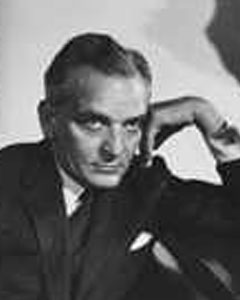 FREDERICK LOEWE (born June 10, 1901, Berlin, Germany—died February 14, 1988, Palm Springs, California, U.S.) German-born American composer and collaborator with Alan Jay Lerner on a series of hit musical plays, including the phenomenally successful My Fair Lady (1956; filmed 1964).
FREDERICK LOEWE (born June 10, 1901, Berlin, Germany—died February 14, 1988, Palm Springs, California, U.S.) German-born American composer and collaborator with Alan Jay Lerner on a series of hit musical plays, including the phenomenally successful My Fair Lady (1956; filmed 1964).
Loewe, whose father was a Viennese actor and operetta tenor, was a child prodigy, playing the piano at age 5, composing for his father’s presentations at 7, and at 13 becoming the youngest soloist to appear with the Berlin Philharmonic Orchestra. He received advanced musical instruction from Ferruccio Busoni and Eugène d’Albert. Loewe wrote a popular song, “Katrina,” at age 15, and more than 1,000,000 copies of the sheet music for it were eventually sold.
Loewe arrived in the United States in 1924 and worked in a variety of odd jobs for the next 10 years. In 1934 he contributed music to the Broadway play Petticoat Fever, and by 1936 he was writing music for Broadway revues, but he received little acclaim. Loew collaborated with lyricist Earle Crooker on the musical plays Salute to Spring (1937) and Great Lady (1938), but they similarly failed to gain attention.
In 1942 Loewe met Alan Jay Lerner at the Lambs, a theatrical club in New York City, and asked him to work on revising Salute to Spring for a Detroit producer. They continued their collaboration through two failures, What’s Up? (1943) and The Day Before Spring (1945), before achieving success on Broadway with Brigadoon (1947). This was followed by Paint Your Wagon (1951), My Fair Lady, the film Gigi (1958), and Camelot (1960). Personal differences between Loewe and Lerner surfaced during the writing of Camelot, and they suspended their collaboration for more than a decade. They reunited to adapt Gigi for the stage (1973) and to write the score for the film The Little Prince (1974).
The score of My Fair Lady was among the most successful ever to emerge from the American musical theatre. More than 5,000,000 copies of the Broadway-cast recording were sold, and, of Loewe’s 16 very different melodies, “I Could Have Danced All Night,” “On the Street Where You Live,” and “I’ve Grown Accustomed to Her Face” underwent innumerable arrangements and renditions. His music ranged from high romance (“If Ever I Would Leave You” from Camelot and “On the Street Where You Live” from My Fair Lady) to lighthearted melodies (“The Night They Invented Champagne” and “Thank Heaven for Little Girls” from Gigi) to subtle settings for nearly spoken songs (“Why Can’t the English?” from My Fair Lady and “How to Handle a Woman” from Camelot).
What are the showtimes?
The show is on stage six days a week; Tuesday through Sunday. Showtimes are as follows:
Tuesdays at 7:00 P.M.
Wednesdays at 2:00 P.M. and 7:00 P.M.
Thursdays at 7:00 P.M.
Fridays at 8:00 P.M.
Saturdays at 3:00 P.M. and 8:00 P.M.
Sundays at 2:00 P.M.
Showtimes may vary. Always consult the official show calendar or call 415.677.9596 for updated dates and times.
How much are tickets?
Tickets range from $30 to $100, although prices may fluctuate depending on date, showtime, and demand. Discounts are available to season subscribers.
When did My Fair Lady premiere?
My Fair Lady premiered on Broadway on March 15, 1956 at the Mark Hellinger Theatre in New York City. The musical was an immediate critical and popular success, running for 2,717 performances and becoming the longest-running Broadway musical at the time. The production was nominated for 10 Tony Awards and won 6, including Best Musical.
What is the seating chart for this show?
San Francisco Playhouse's auditorium is on two levels: Orchestra and Mezzanine/Balcony. Our intimate 199-seat theatre has only nine rows in the Orchestra, meaning every single seat is close to the stage.
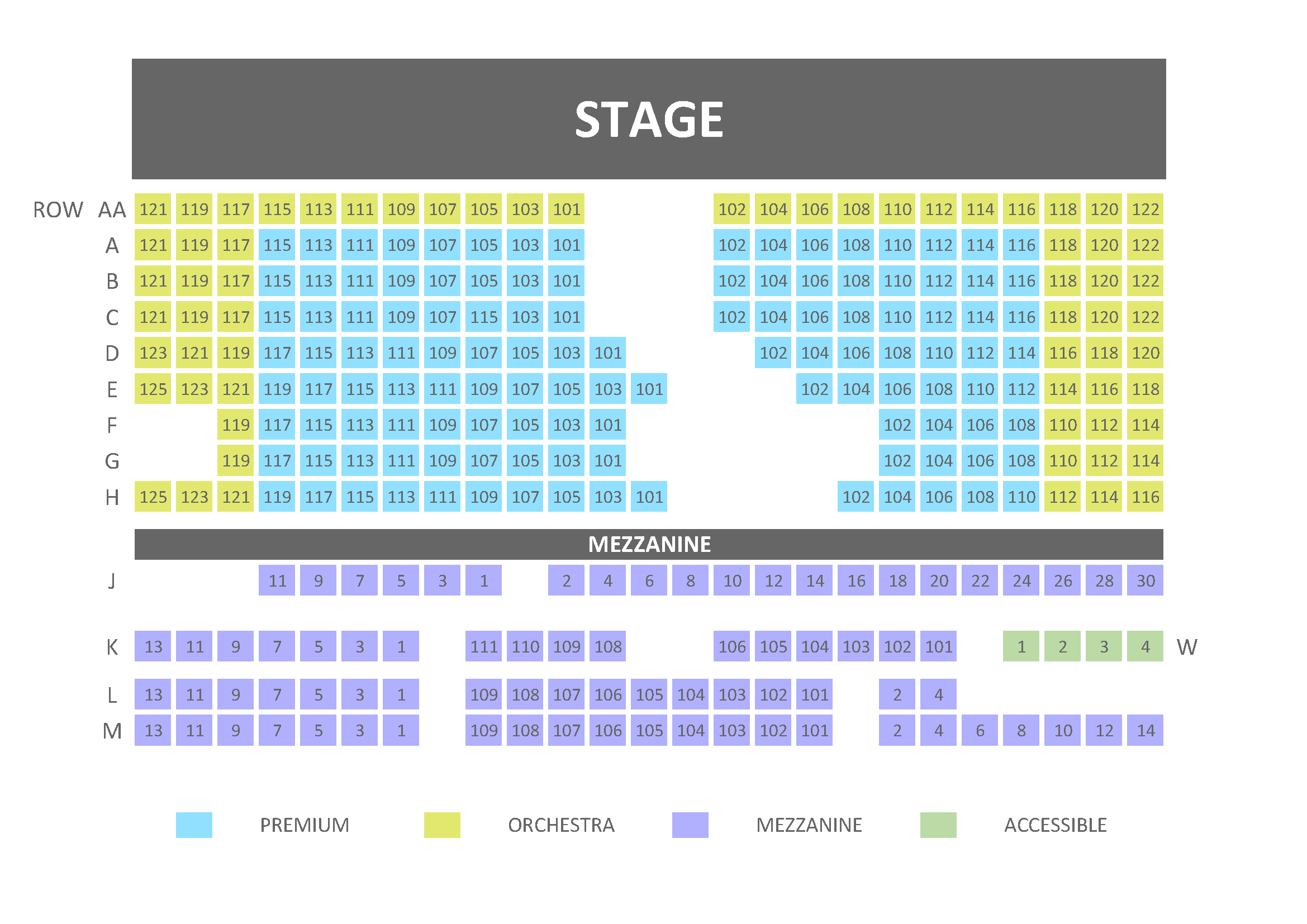
Where is San Francisco Playhouse?
San Francisco Playhouse is located at 450 Post St., San Francisco CA 94102. The theatre is located on the second floor of the Kensington Park Hotel. Patrons may access the venue using the elevators or stairs in the hotel lobby.
Is San Francisco Playhouse ADA accessible?
San Francisco Playhouse is ADA accessible. The theatre is located on the second floor and can be accessed by two elevators from the lobby level. Wheelchair and companion seating are located on the theatre's mezzanine level.
Is there parking on site?
We do not offer onsite parking, and the hotel's valet is only available to guests of the Kensington Park Hotel. To reserve a parking spot with SpotHero, visit the San Francisco Playhouse SpotHero Parking Page. Limited street parking is also available.
We recommend taking BART or Muni to San Francisco Playhouse. We are four blocks from the Powell Street BART/Muni station — just a seven-minute walk.



